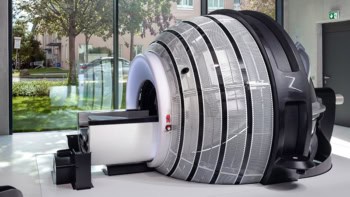Available to watch now, LAP GmbH Laser Applikationen takes a dive deep into patient-specific quality assurance
Want to learn more on this subject?

Pending CAMPEP CE credit.
The American Association of Physicists in Medicine (AAPM) has recently released new recommendations that dive deep into patient-specific quality assurance (QA), with task group (TG) 219 published in 2021 covering independent calculation-based dose/monitor-unit verification for intensity modulated radiation therapy (IMRT), which stems from TG 218 published in 2018 on tolerance limits and methodologies for IMRT measurement-based verification QA.
Benefits of attending:
- Understand the limitations for each of the point, planar and volumetric secondary check processes and algorithms (TG 219).
- Understand the recommendations from TG 218 with regard to IMRT QA and how pass/fail rates correspond to the delivery of the plans.
Want to learn more on this subject?
 Vimal Desai, PhD, clinical instructor, Thomas Jefferson University Hospitals. Vimal’s introduction to the field of medical physics was through patient-specific QA projects utilizing log file analysis. This lead to his expanded interest in radiation dosimetry, quality assurance, and radiation measurements/simulations. His doctoral thesis was focused on linear accelerators and investigated calibrating radiation detectors closer to clinical delivery conditions. This has led to various collaborators investigating the efficacy of plan complexity metrics and maintains interests and ongoing projects in various topics related to patient-specific QA.
Vimal Desai, PhD, clinical instructor, Thomas Jefferson University Hospitals. Vimal’s introduction to the field of medical physics was through patient-specific QA projects utilizing log file analysis. This lead to his expanded interest in radiation dosimetry, quality assurance, and radiation measurements/simulations. His doctoral thesis was focused on linear accelerators and investigated calibrating radiation detectors closer to clinical delivery conditions. This has led to various collaborators investigating the efficacy of plan complexity metrics and maintains interests and ongoing projects in various topics related to patient-specific QA.
 Carlos Bohorquez, MS, DABR, is the product manager for RadCalc at LifeLine Software Inc, part of the LAP Group. An experienced board-certified clinical physicist with a proven history of working in the clinic and medical device industry, Carlos’s passion for clinical quality assurance is demonstrated in the research and development of RadCalc into the future.
Carlos Bohorquez, MS, DABR, is the product manager for RadCalc at LifeLine Software Inc, part of the LAP Group. An experienced board-certified clinical physicist with a proven history of working in the clinic and medical device industry, Carlos’s passion for clinical quality assurance is demonstrated in the research and development of RadCalc into the future.




